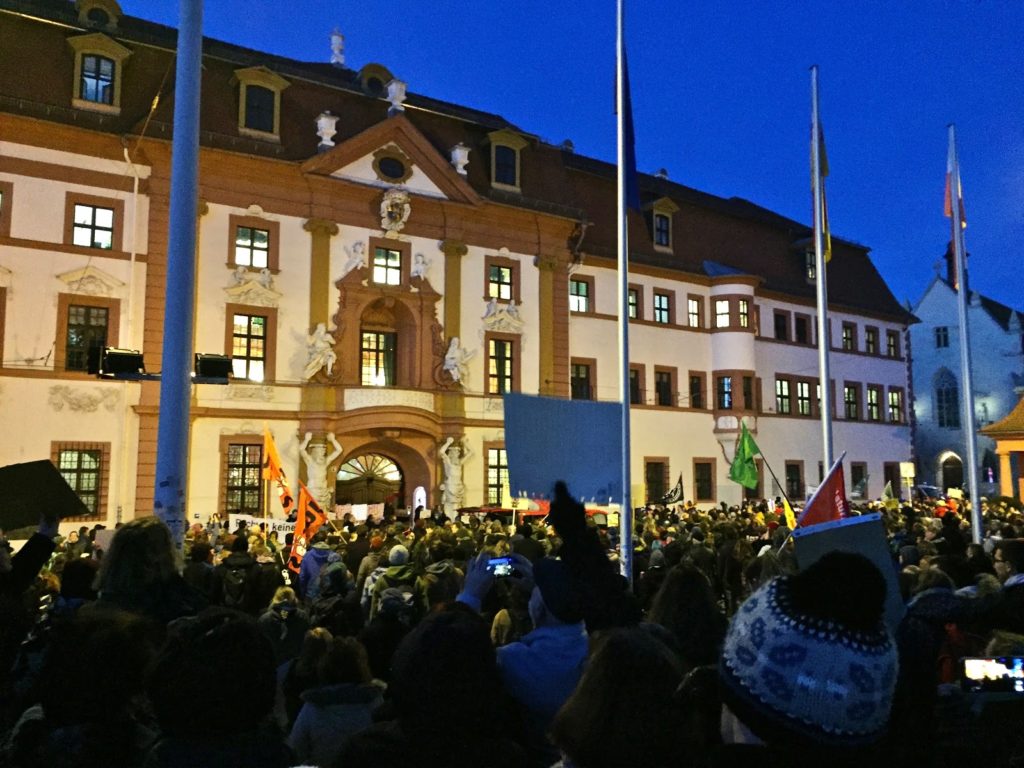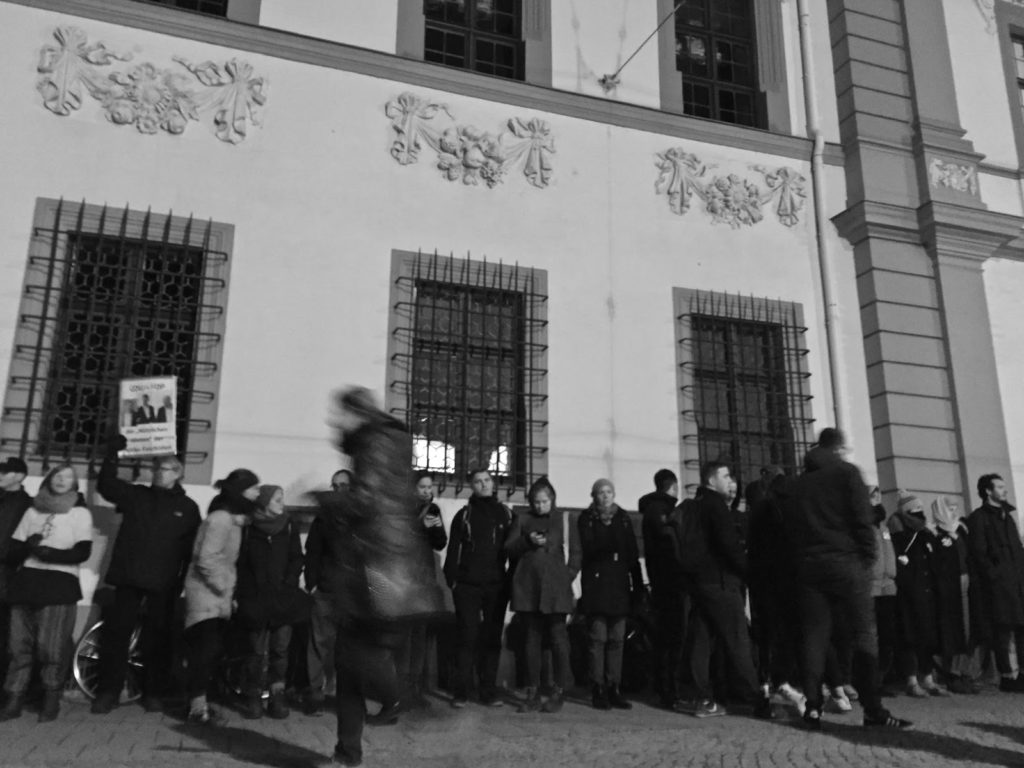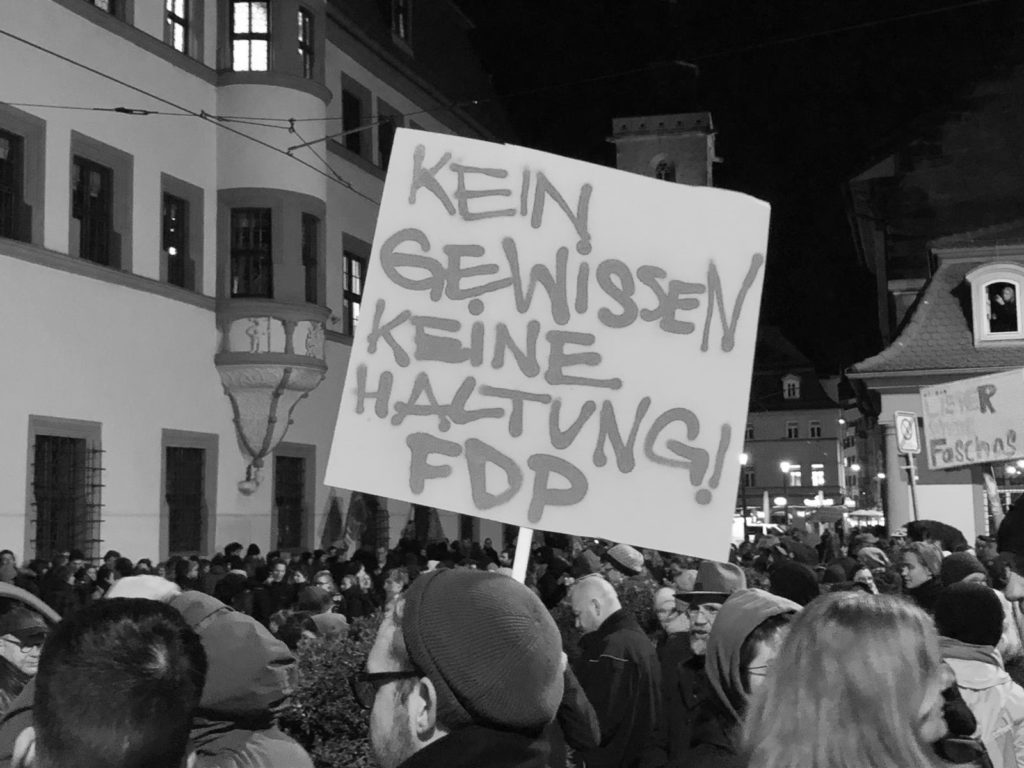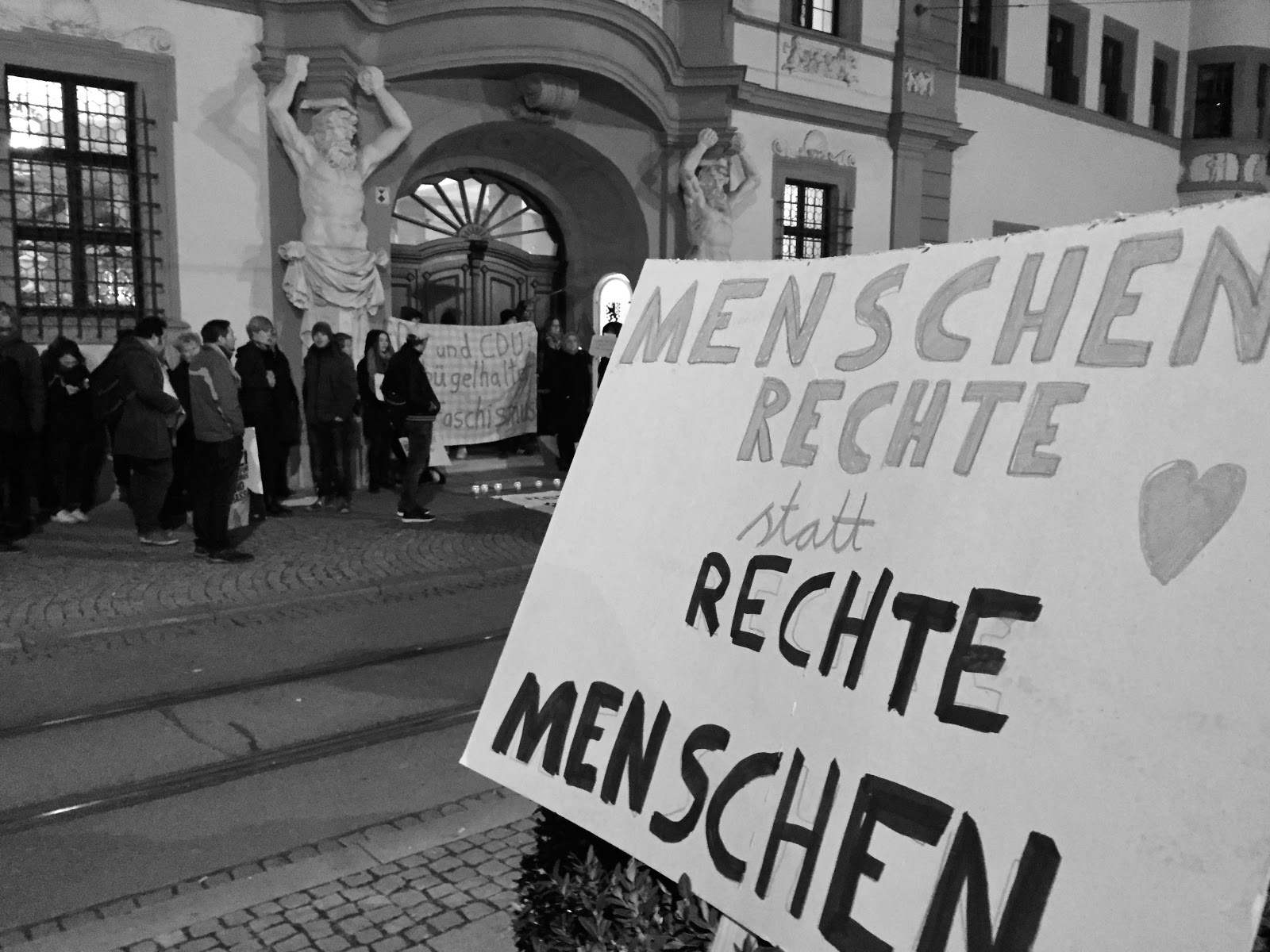The city Erfurt in the central German federal state Thuringia has a long tradition of being shaped by its citizens. This was shown again on the 5th of February, when an election woke up people and parties all over Germany. A regionally focused opinion about a global problem: citizens struggling with their elected representatives.
The progression of events
After the regional elections in Thuringia in November 2019, the election for the Bundesland’s prime minister (PM) took place in the regional parliament. For the context: the office holder Bodo Ramelow for the Left stood for election, as did Christoph Kindervater for the AfD, the right-wing nationalist party. The first two ballots saw no winner because no one gained the absolute majority. In the third ballot, when only a relative majority mattered, a third candidate suddenly appeared: Thomas Kemmerich from the FDP (liberal Democrats). He won with 45 votes against Ramelow (44 votes, Kindervater 0). To understand the political earthquake this created it is necessary to know that the FDP, with only 5% of the votes, barely managed to get into the parliament. The election of Kemmerich was only possible due to votes from the CDU (Conservatives) and the AfD. And with that, the chaos was perfect.
Protest against Kemmerich
Everything about the political events, statements and discussion of the parties can be read in the main German news outlets that constantly reported about it. What was little talked about is what happened in Thuringia’s streets, what moved civil society: They saw a problem and did not let it go without a comment. Spontaneously, demonstrations formed all over the state’s capital Erfurt. Around 5pm a crowd gathered at the state chancellery, where Ramelow’s office was located.

“Kemmerich wir woll’n dich nicht!” [Kemmerich, we don’t want you!]
It is cold but the crowd remains for hours in front of the state chancellery, peaceful, but shouting to the windows. Not everyone agrees – a man who passes says “Go home” to the protesters. But energy is rising with the call: “Bodo ans Fenster” [Bodo to the window]. It reminds of the historic meeting of Willy Brandt and Willi Stoph in 1970. The protesters demand the resignation of Kemmerich and re-elections. But Kemmerich refuses. After one hour, a human chain is forming around the chancellery to hinder Kemmerich from entering. He is not our PM, they say.
Why the protest?
In the political landscape there is not only Good and Bad. Maybe Kemmerich’s politics have some good ideas. A Kemmerich as PM is one thing – a PM who got into office thanks to the votes of a right-wing party is something different. One who thinks that the public is just going to accept that has miscalculated the situation, is short sighted or simple minded.
CDU and FDP decline a formal cooperation with the AfD, Kemmerich portrays himself as their opponent also in the future. So, what is the people’s problem? First, there is the size of the Thuringian FDP. Kemmerich is far from having a majority, since he declines to work with the AfD and the Left, and Social Democrats and the Green party decline to work with him. His government would have been incapable of working. With 5%, the FDP would have been governing a federal state that voted for something completely else. People felt ignored, their democracy betrayed.

The Left, that had the most support in the election, was the loser. Not because of the FDP’s own power, but only thanks to CDU and AfD. And there is the problem. Kemmerich only got his power thanks to a right-wing nationalist party. And even though he distances himself from them – is it justifiable? Not for the Thuringians on the streets. Kemmerich is positioning himself clearly against AfD, against Höcke, against the Right wing. But these words are apparently not enough, since he was so obviously supported in the election – even though he himself previously excluded an election through the AfD. The protesters fear that the AfD thus gains power in Thuringian politics and they criticise the hypocrisy of the Thuringian FDP. Some draw a comparison to the end of the Weimar Republic: “Wer hat uns verraten? Freie Demokraten!” [Who betrayed us? Liberal Democrats!]
Political chess
Many suspect a setup behind the election and the AfD is presenting itself as the puppet master. That it was planned shows in the way that the whole AfD voted for Kemmerich and not their own candidate. Pure political strategy: trusting that not enough delegates vote for Ramelow, waiting until the third ballot to then bring in a new candidate and bring him into office. The talks behind closed doors and the political manoeuvring are criticised. The election of the federal PM is not direct, but an indirect democratic process – in this case, too indirect for many. The people in front of the chancellery want Ramelow back, he has a lot of support. He brought about a lot of change in the past 5 years, necessary change, which is reflected by his growing popularity. His politics are described as integrative. The result of the regional election reflects the public’s wish for him to continue his work.
Whatever happens, the AfD is using it to present themselves as winners. What do they gain from the election? An overthrown left government and a lot of material to claim it was the will of the people. They portray the result as their own success and that Kemmerich did everything they wanted. Their goal: to prevent another left-social-green government. Party whip Gauland recently said, the AfD would also vote for Ramelow just to block him because he would not accept. This shows their destructive character. They celebrate that they cannot be ignored anymore but need to be included in decision-making. It could be seen how many oppose that just on Erfurt’s streets. But one thing was achieved: FDP and CDU walk into a crisis and are internally caught in an argument about their direction. The political parties are disunited in their reaction, fear to take any responsibility, are unsure about how to proceed.
All united?
I wrote based on my experience of the demonstration, that I supported and joined spontaneously. What impressed me was the fact that Thuringia can organize a protest like that. My home surprised me. It was a counterexample to the story of the right-wing East. When talking about the new federal states, it is often mentioned that so many nationalists are living there. That the East is different, less experienced with democracy. That right-wing tendencies are more accepted. Unfortunately, it is a fact that in Thuringia the AfD has particular strong support. But why is so little talked about why Thuringians went on the streets this time? A spontaneous demonstration for democracy and against nationalism? Yes, Thuringia can do that! People showed that they do not accept everything.
“Alle zusammen gegen den Faschismus!” [All united against facism!]
In everyday life, active participation in politics is not high on the agenda. You might complain, but on rare occasions there was as much interest as shown in the past weeks. People came together, they informed each other, with one common goal. This group dynamic and energy united people.

A breach of a taboo is what the events are frequently called in the media – and this is the central point of the political debate: what do you accept? The news is reporting a lot about the reactions in politics. Debates about re-elections or not, candidates and directions of the parties follow on an everyday basis and change quickly. Kemmerich announced his resignation after 25 hours. There is a lot of pressure coming from the top of the parties. But not only the pressure from above counts – also the one from below. From the population. Who talks about the people in Thuringia? They are the ones that showed: we are against nationalism! This article was supposed to show how pressure from below was done: peaceful, spontaneous, but with a clear message. Not only in Erfurt by the way, but also in Weimar, Jena, Gera und Ilmenau. There is much talk about a catastrophe in politics in Thuringia but little about the success of civil society there. And the protest goes on.
by Nina Kolarzik
Photo Credits
All photos by Jürgen Kolarzik and Nina Kolarzik, All rights reserved










